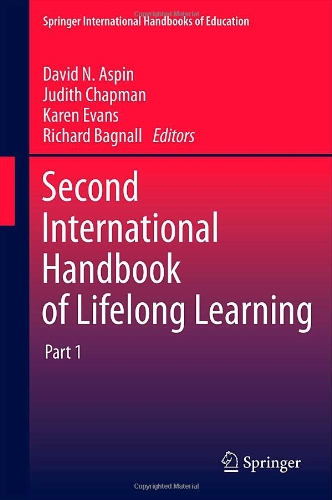

Most ebook files are in PDF format, so you can easily read them using various software such as Foxit Reader or directly on the Google Chrome browser.
Some ebook files are released by publishers in other formats such as .awz, .mobi, .epub, .fb2, etc. You may need to install specific software to read these formats on mobile/PC, such as Calibre.
Please read the tutorial at this link: https://ebookbell.com/faq
We offer FREE conversion to the popular formats you request; however, this may take some time. Therefore, right after payment, please email us, and we will try to provide the service as quickly as possible.
For some exceptional file formats or broken links (if any), please refrain from opening any disputes. Instead, email us first, and we will try to assist within a maximum of 6 hours.
EbookBell Team

4.7
36 reviewsThe second edition of the International Handbook of Lifelong Learning is extensive, innovative, and international in scope, remit and vision, inviting its readers to engage in a critical re-appraisal of the theme of “lifelong learning”. It is a thorough-going, rigorous and scholarly work, with profound and wide-ranging implications for the future of educating institutions and agencies of all kinds in the conception, planning and delivery of lifelong learning initiatives. Lifelong learning requires a wholly new philosophy of learning, education and training, one that aims to facilitate a coherent set of links and pathways between work, school and education, and recognises the necessity for government to give incentives to industry and their employees so they can truly “invest” in lifelong learning. It is also a concept that is premised on the understanding of a learning society in which everyone, independent of race, creed or gender, is entitled to quality learning that is truly excellent.
This book recognises the need for profound changes in education and for goals that are critically important to education, economic advancement, and social involvement. To those concerned about the future of our society, our economy and educational provision, this book provides a richly illuminating basis for powerful debate. Drawing extensively on policy analyses, conceptual thinking and examples of informed and world-standard practice in lifelong learning endeavours in the field, both editors and authors seek to focus readers' attention on the many issues and decisions that must be addressed if lifelong learning is to become a reality for us all.